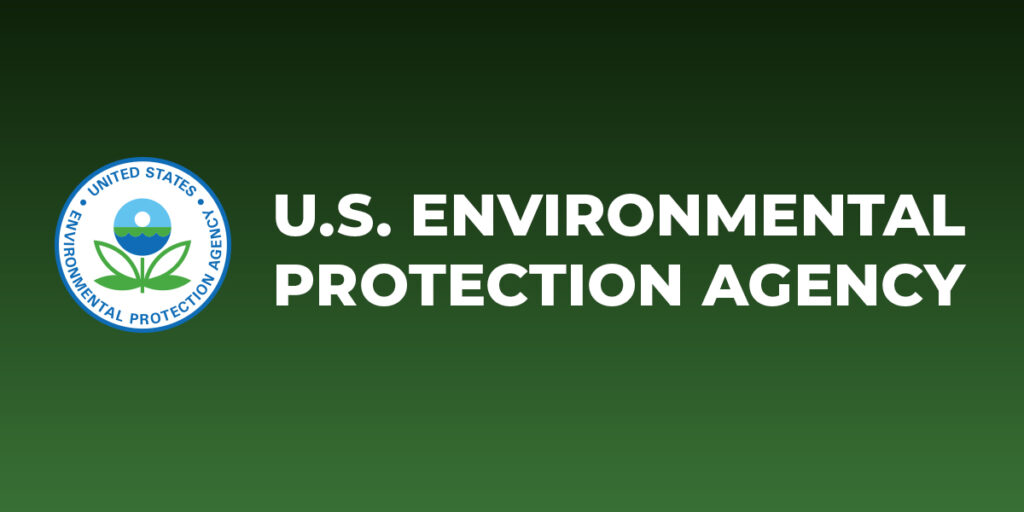 (AGENPARL) - Roma, 22 Ottobre 2024
(AGENPARL) - Roma, 22 Ottobre 2024(AGENPARL) – mar 22 ottobre 2024 Issued: Oct 22, 2024 (1:00pm EDT)
If you wish to unsubscribe please do so
here: http://url6130.epa.mediaroom.com/ls/click?upn=u001.iqz6hAvLdUl-2FaSixKUG3iyFJBsxNAroAZOQ1BID8fKIiLAUfJX2sQlhu1tzKAOIu-2BU84uzAzSpWvmWyHnsNJDRYXWx5dlMz75Zp9ch-2BQlG6mQHPYjReZhS13hvd5qOopcLDv_-2B0Ok6Af7hyz7Kqg6CR74pYblAA1WjrUjKSJUAiv3NOub0DC4O7JPWGxIlQ7kBB-2FSq29F-2FILOsv11mKFhOXEjR3XihnJ7IE2wUn5Vi1sK5vHdI5MhGbOOMJd1KdF5lvDDk6EEGFh5lLMyX03fHUOxb5edjCrN8TPRrT30kUcqj6vva83xnroyRCyxR8yd5AaB-2FLx0aszZmf87e-2FI7RaRnKcyHGM5pEWSCikEtFmsAUHmTYlOpiYdd9LM9OTanD-2Bwr
EPA Finalizes Cancellation of the Pesticide Dacthal
WASHINGTON – Today, Oct. 22, the U.S. Environmental Protection Agency is
announcing the cancellation of all products containing the pesticide dimethyl
tetrachloroterephthalate (DCPA or Dacthal) under the Federal Insecticide,
Fungicide and Rodenticide Act (FIFRA).
In making this decision, EPA relied on the best available science, which
included robust studies demonstrating thyroid toxicity. Unborn babies whose
pregnant mothers are exposed to DCPA from handling, entering or working in
areas where DCPA has already been applied, could experience changes to fetal
thyroid hormone levels. These changes are generally linked to low birth
weight, impaired brain development, decreased IQ, and impaired motor skills
later in life, some of which may be irreversible.
“With the final cancellation of DCPA, we’re taking a definitive step to
protect pregnant women and their unborn babies,” said Assistant
Administrator for the Office of Chemical Safety and Pollution Prevention
Michal Freedhoff. “The science showing the potential for irreversible harm
to unborn babies’ developing brains, in addition to other lifelong
consequences from exposure, demands decisive action to remove this dangerous
chemical from the marketplace.”
Background on DCPA and Biden-Harris Administration Efforts to Assess and
Address Risks
DCPA is a pesticide that was registered to control weeds in both agricultural
and non-agricultural settings, but was primarily used on crops such as
broccoli, brussels sprouts, cabbage and onions.
In 2013, the agency issued a Data Call-In (DCI) to AMVAC Chemical Corporation
(AMVAC), the sole manufacturer of DCPA, requiring it to submit more than 20
studies to support the then-existing registrations of DCPA. The required data,
due in January 2016, included a comprehensive study of the effects of DCPA on
thyroid development and function in adults and in developing young before and
after birth. Several of the studies that AMVAC submitted from 2013-2021 were
considered insufficient to address the DCI, while the thyroid study and other
studies were not submitted at all.
In April 2022, EPA issued a very rarely used Notice of Intent to Suspend the
DCPA technical-grade product (used to manufacture end-use products) based on
AMVAC’s failure to submit the complete set of required data for almost 10
years, including the thyroid study. Although AMVAC submitted the required
thyroid study in August 2022, EPA suspended the registration based solely on
AMVAC’s continued failure to submit other outstanding data following an
administrative hearing. In November 2023, EPA lifted the data submission
suspension after AMVAC submitted sufficient data. Most DCPA use on turf was
voluntarily canceled by AMVAC in December 2023, but unacceptable risks from
other uses remained.
In May 2023, EPA released its assessment on the risks of occupational and
residential exposure to products containing DCPA, following its analysis of
the thyroid study submitted by AMVAC. The assessment found health risks
associated with DCPA use and application, even when personal protective
equipment and engineering controls are used. The most serious risks were to
the unborn babies. EPA estimated that some pregnant mothers handling DCPA
products could be subjected to exposures four to 20 times greater than what
EPA had estimated is safe for unborn babies. Also of concern were risks to
unborn babies of pregnant mothers entering or working in areas where DCPA had
been applied or living near areas where DCPA was used. Levels of DCPA in a
treated field could remain at unsafe levels for 25 days or more. In April
2024, EPA issued a public warning regarding the significant health risks to
unborn babies of pregnant mothers exposed to DCPA and its intent to pursue
action to address the health risks associated with the pesticide as quickly as
possible.
The August 2024 emergency suspension issued by EPA was the first time in
almost 40 years EPA has taken this type of emergency action. Following EPA’s
emergency suspension EPA received a letter from AMVAC stating its intent to
voluntarily cancel the remaining pesticide products containing DCPA in the
U.S. AMVAC subsequently announced that it intends to cancel all international
registrations as well. On Aug. 29, 2024, EPA published a notice in the Federal
Register requesting public comments on the voluntary cancellation. The comment
period has concluded, and EPA is publishing the final cancellation order.
The final cancellation prohibits anyone from distributing, selling or carrying
out other similar activities for the remaining pesticide products containing
DCPA. It also means that no person can continue using existing stocks of those
products. AMVAC has developed a voluntary return program for existing DCPA
products. In advance of the cancellation order, AMVAC implemented a plan to
identify existing stocks and coordinated a collection process. When the return
program concludes in the fall of 2024, EPA will continue monitoring this
process to ensure that the collected DCPA products are disposed in a manner in
accordance with applicable laws. EPA plans to release additional information
about any remaining stocks in the coming months.
Read the public inspection version of the Federal Register notice on the DCPA
Final Cancellation Order for Pesticide Registrations. Upon publication of the
Federal Register notice, the final order will be is available at docket
EPA-HQ-OPP-2011-0374 at the Regulations.gov page.
For answers to frequently asked questions about DCPA, please see the DCPA
Questions and Answers webpage. For additional background on the DCPA and
EPA’s efforts to assess and address risks, see the Aug. 6, 2024, or Aug.
28, 2024, press releases.
To unsubscribe or change your settings click here:
http://url6130.epa.mediaroom.com/ls/click?upn=u001.iqz6hAvLdUl-2FaSixKUG3iyFJBsxNAroAZOQ1BID8fKKhIILjisBDEktm3-2BIos9X68ePZJoh9xuIniw-2FGWUxnR2ovOz6hiRJ5D-2FZG6ujeUnL99iRa-2BnDx9kqL-2BoFxGXfMHJZMKHqMPV5xGMxdaAQh-2FA-3D-3D9Jt8_-2B0Ok6Af7hyz7Kqg6CR74pYblAA1WjrUjKSJUAiv3NOub0DC4O7JPWGxIlQ7kBB-2FSq29F-2FILOsv11mKFhOXEjR3XihnJ7IE2wUn5Vi1sK5vEEMktGi-2B0VGCMRo0Bu2nHz-2FkBT2Vo1q3XM9StmKwlr91VgFDK5ZV7bcPBgH8uwl6os9Bv8C35R9bJKfdQxSWcalvHknzfxC-2Fkv-2FGT-2F-2F95Q6pJ0Rhij-2FQCji-2FABxnqJ71JfwTL0n9UFIbUMI3pLL3qD

